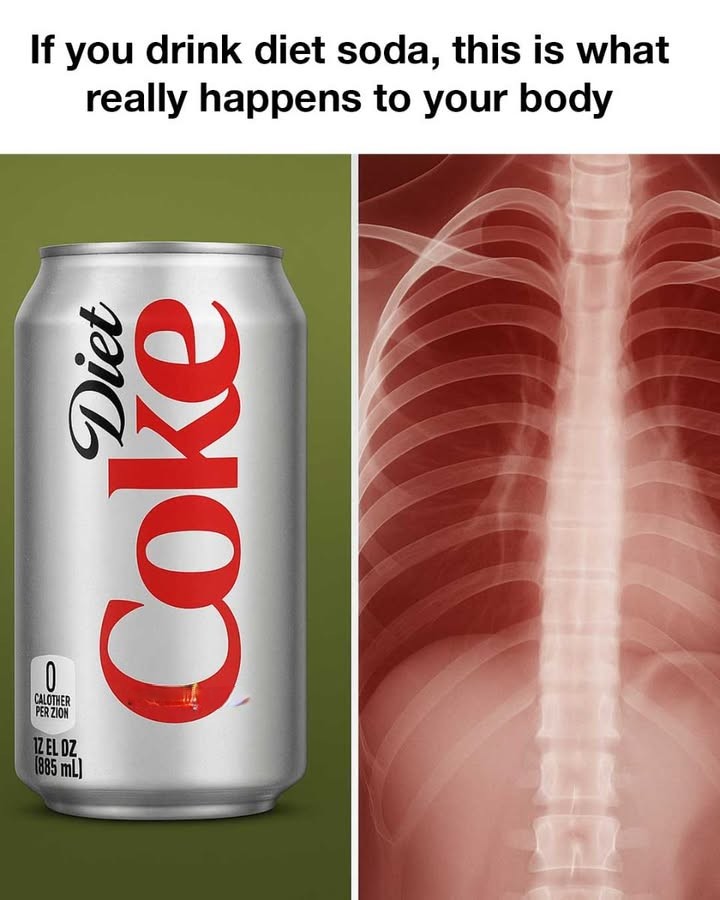Diet soda has become a staple in the beverage industry, often marketed as a healthier alternative to regular soda due to its low or zero-calorie content. It gained popularity in the late 20th century, appealing to those seeking to reduce calorie intake without sacrificing the enjoyment of a sweet, fizzy drink. Brands like Diet Coke and Pepsi Zero Sugar have become household names, and the diet soda market continues to thrive as consumers look for ways to manage weight and reduce sugar consumption. However, the question remains: what are the actual effects of drinking diet soda on the body?
Understanding the Ingredients in Diet Soda
Diet sodas are primarily composed of carbonated water, artificial sweeteners, flavorings, acids, and preservatives. The most common artificial sweeteners used include aspartame, sucralose, and saccharin. These sweeteners are many times sweeter than sugar, allowing manufacturers to use them in small quantities to achieve the desired sweetness without adding calories. Other ingredients like phosphoric acid and citric acid contribute to the tangy flavor and help preserve the beverage, while caffeine is often added for its stimulating effects.
The Science Behind Artificial Sweeteners
Artificial sweeteners are synthetic sugar substitutes that provide sweetness without the calories associated with sugar. Aspartame, for example, is about 200 times sweeter than sugar and is metabolized into phenylalanine, aspartic acid, and methanol, which are naturally occurring compounds in the body. Sucralose, on the other hand, is not metabolized by the body and is excreted unchanged. While these sweeteners are approved by regulatory agencies like the FDA, their long-term health effects are still a subject of ongoing research and debate.
Top 10 Effects of Drinking Diet Soda on Your Body
While diet soda is often chosen for its calorie-free appeal, its consumption can have various effects on the body, some of which are still being studied. Here are ten potential impacts of drinking diet soda:
1. Impact on Metabolism and Weight Management
Contrary to popular belief, some studies suggest that diet soda may not aid in weight loss and could potentially contribute to weight gain. The sweet taste without calories might confuse the body’s metabolic processes, leading to increased hunger and cravings for sugary foods, which can result in higher calorie intake overall.
2. Effects on Insulin Sensitivity and Blood Sugar Levels
Research indicates that artificial sweeteners may affect insulin sensitivity. Some studies have shown that consuming diet soda could lead to an increase in insulin resistance, a risk factor for type 2 diabetes. The body’s response to the sweet taste without actual sugar might disrupt normal insulin regulation.
3. Influence on Appetite and Cravings
Diet soda’s intense sweetness can alter taste preferences and increase cravings for sweet, high-calorie foods. This can lead to a cycle of consuming more sugary foods, potentially undermining the calorie-saving benefits of choosing diet soda.
4. Potential Impact on Heart Health
Some studies have linked diet soda consumption to an increased risk of cardiovascular events. While the exact mechanisms are not fully understood, it is suggested that the combination of artificial sweeteners and other ingredients might contribute to heart health issues.
5. Effects on Bone Density and Calcium Absorption
Phosphoric acid, commonly found in diet sodas, can interfere with calcium absorption, potentially affecting bone health. Regular consumption of diet soda has been associated with lower bone mineral density, which could increase the risk of osteoporosis and fractures.
Next Page

